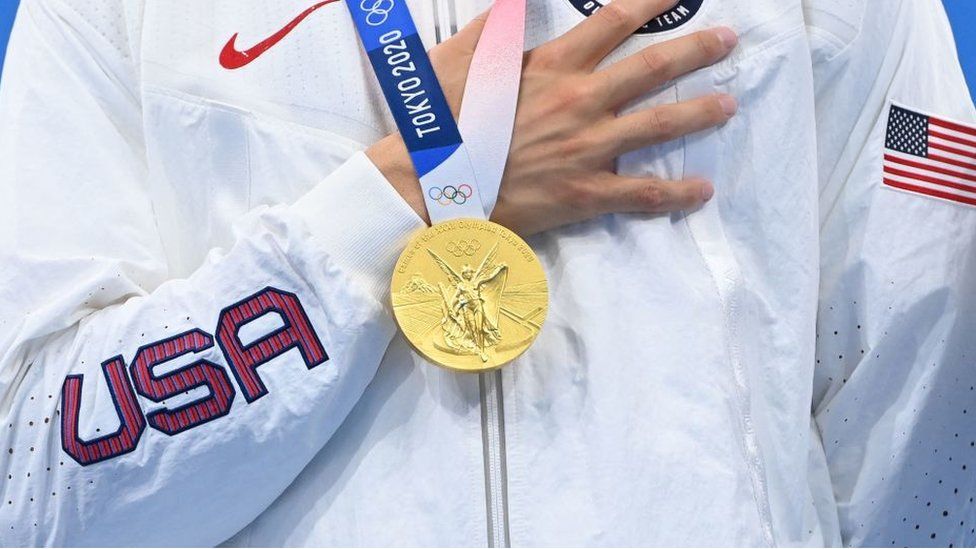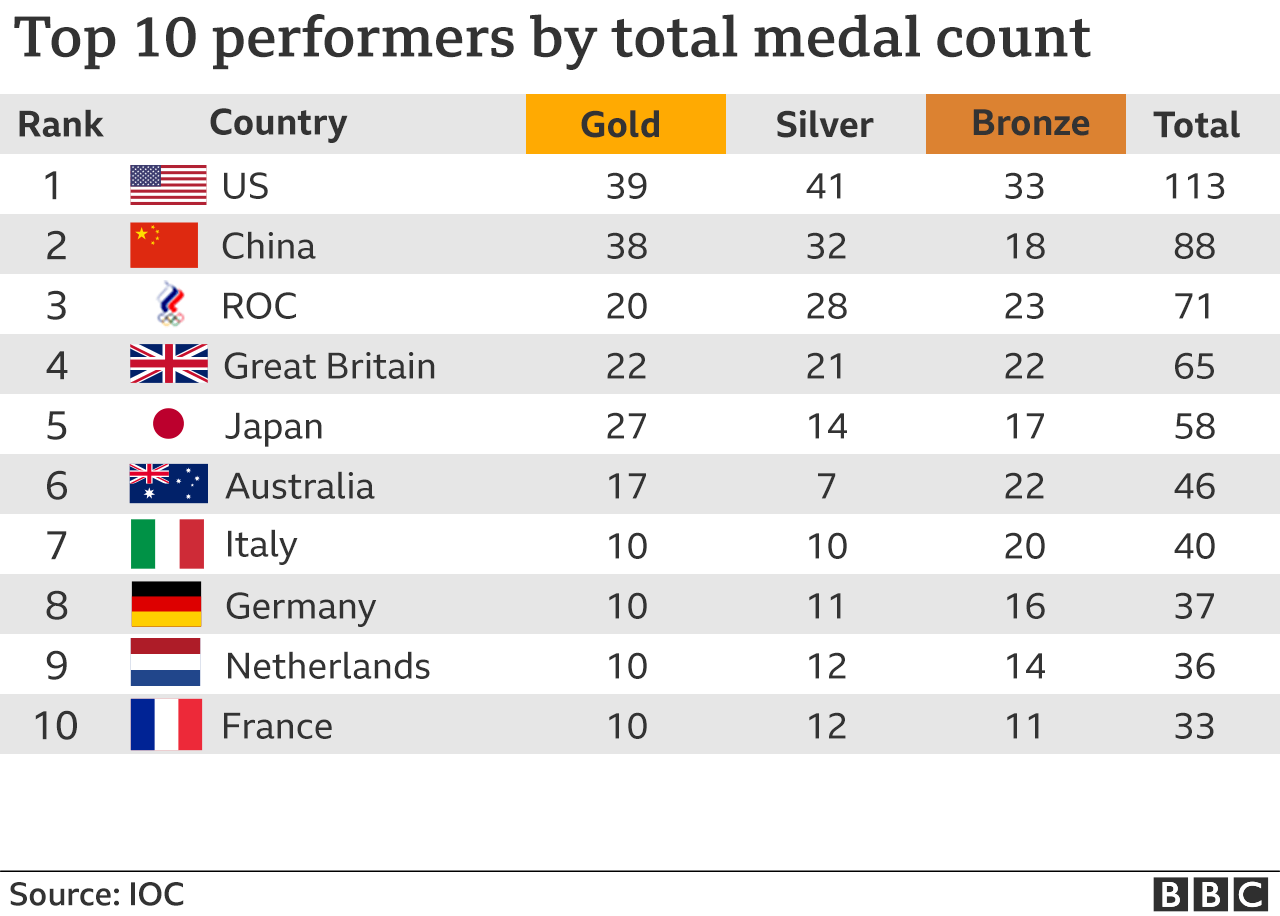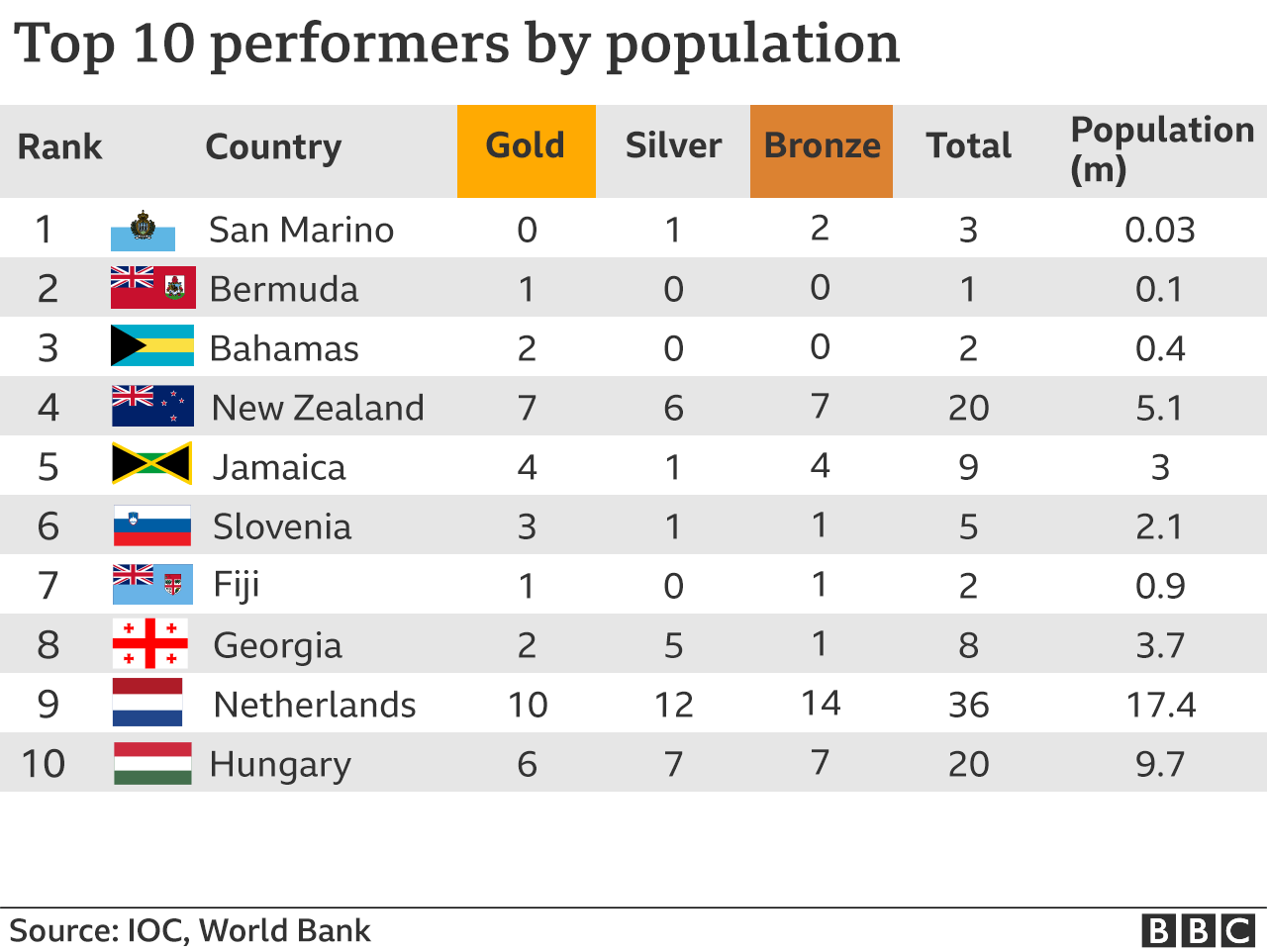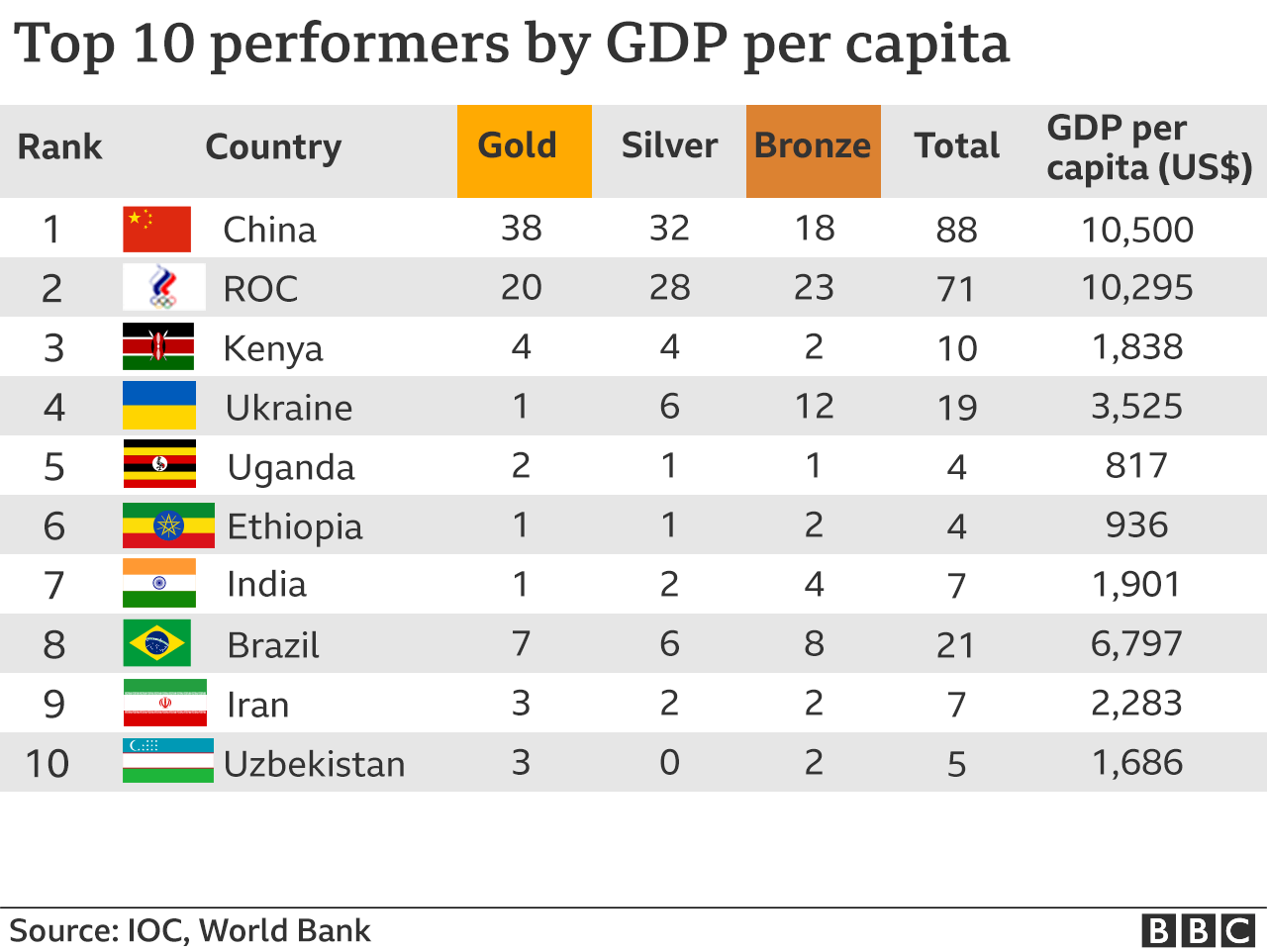Join Date: Feb 2011
Posts: 50,305
Thanks: 28,742
Thanked 14,428 Times in 10,234 Posts
|
 re: Russian Olympic Chief-Official Complaint-Brands Judge a Disgrace
re: Russian Olympic Chief-Official Complaint-Brands Judge a Disgrace
Tokyo Olympics 2020/2021c MEDALS: An Alternative Table - With US 15th
The Olympics medals table was again dominated by the biggest countries like the US, which finished top. But how would the table look if population and wealth were taken into account?
BBC News, 10 AUG 2021.

When it comes to counting the medal spoils, there is a strong sense of deja vu. Every four years, the same few countries rack up medal after medal - the US, China, Russia - and Tokyo 2020 was no different.
The US won 113 medals total, including 39 golds, the most of any country.
So what makes countries like the US dominate, while others lag behind? Economists and data nerds have a few theories.
"It's still loud and clear from the patterns that what matters is population, level of income, and political system," says David Forrest, an economist at the University of Liverpool who researches Olympic predictions.
Population matters, Mr Forrest says, because the bigger the pool of athletes, the more likely it is for a country to produce true competitors.
"It's clear that very few people who are born have got the potential to be a world-class athlete," he says.
Take a country like Luxembourg, which has a population of 633,622. It sent 12 athletes to compete in seven sports, and won no medals. Meanwhile the US, which has the third-largest population in the world, sent 613 athletes to compete in 35 sports and took home more medals than any other country.
Some countries over-perform, given their population size. The BBC came up with an alternative ranking, which looked at the number of medals won per million people. In this scenario, the tiny European nation of San Marino, with a population of just over 33,000, comes out on top, even though it earned only three medals.
The US didn't even crack the top 20, coming in at 60th place.


 There are cultural and political factors too. Mr Forrest says that countries that used to belong to the Soviet Union tend to have an advantage, because of the strong sports infrastructure that was established by communist regimes.
There are cultural and political factors too. Mr Forrest says that countries that used to belong to the Soviet Union tend to have an advantage, because of the strong sports infrastructure that was established by communist regimes.
Commonwealth countries also tend to do better than expected compared to their size and wealth. Mr Forrest believes that's because Britain was a pioneer in developing sport as we know it today, and brought that enthusiasm for athletic competition with them around the world.
Australia, which often cracks the top-10 for total medal count, is a prime example.
The sports a country chooses to compete in matter too.
In India, cricket is the national sport but is not played at the Olympics. India also does tend to excel at hockey, which is played at the Olympics, but that only yields a maximum of two medals, one for men and one for women. Whereas sports competed by an individual, such as gymnastics, swimming and athletics, can yield several per athlete.
"In general, it doesn't do you a lot of good to be keen on team sports," Mr Forrest says.
Simon Gleave, head of sport analysis at data company Nielsen Gracenote, says it's these myriad factors that make predicting Olympic medal counts tricky. If you just use variables like population and GDP per capita, you tend to underestimate some of the top performing countries.
Past performance, he says, is a much better predictor of who will do well - but that's still only a rough estimate.
"What you won't pick up is countries that are improving fast or declining fast, and I think that's the interesting part in all of this," he tells the BBC.
To better gauge the Olympic winners, Mr Gleave takes into account not only past athletic performance, but how each country has done at other international sporting competitions since the last Olympic games.
Taking that into account, he predicted that India would actually have its best year yet, which it did, finishing 33rd in terms of most medals won. That smashed its previous record of 51st, from 2008.
|